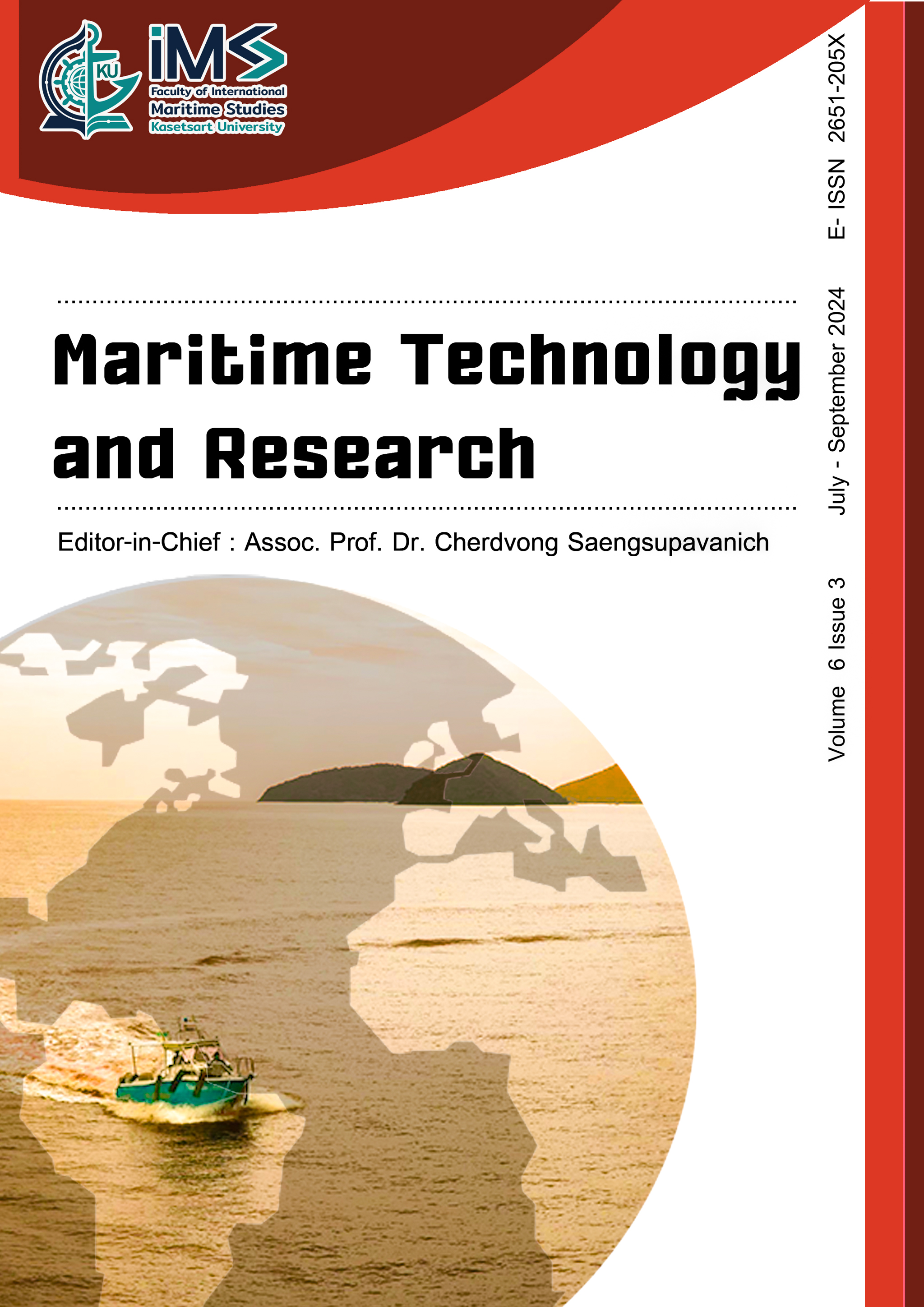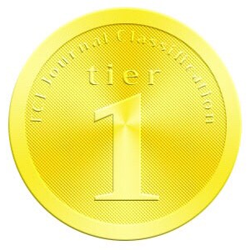“I am a Fisher”: Identity and livelihood diversification in Lake Tanganyika Fisheries, Tanzania
DOI:
https://doi.org/10.33175/mtr.2024.268718Keywords:
Lake Tanganyika, Identity, Fishing practices, Livelihood diversificationAbstract
Human-environmental interaction is central to natural resources management. This interaction determines how the resource is utilized in a given cultural context. In Lake Tanganyika, evidence indicates a decline in fish catches. Despite this decline, fishers have demonstrated little motivation to leave fishing or diversify. A qualitative study was conducted to explore how identity influenced the phenomenon. Interviews, focus group discussions, and observation were employed to generate data. The findings of this study indicated that interactions between the fishing communities and the Lake generated identity, in which fishers came to identify themselves with the Lake. This identity shaped the fishing practices and influenced the motivation to not leave fishing or diversify. Strong attachment to the Lake and fishing activities contributed to little motivation to leave fishing or engage in other sources of livelihood, especially for old fishers. This was also the case for some young fishers in rural areas of the studied communities. This study concludes that considering how fishers identify with the resource is vital for developing future strategies to improve fisheries management. This may include options to expand.
------------------------------------------------------------------------------
Cite this article:
APA Style:
Bulengela, G. (2024). “I am a Fisher”: Identity and livelihood diversification in Lake Tanganyika Fisheries, Tanzania. Maritime Technology and Research, 6(3), 268718. https://doi.org/10.33175/mtr.2024.268718
MDPI Style:
Bulengela, G. “I am a Fisher”: Identity and livelihood diversification in Lake Tanganyika Fisheries, Tanzania. Marit. Technol. Res. 2024, 6(3), 268718. https://doi.org/10.33175/mtr.2024.268718
Vancouver Style:
Bulengela G. (2024). “I am a Fisher”: Identity and livelihood diversification in Lake Tanganyika Fisheries, Tanzania. Marit. Technol. Res. 6(3): 268718. https://doi.org/10.33175/mtr.2024.268718
------------------------------------------------------------------------------
Highlights
- Identity shapes and influences fishing practices
- How fishers identify themselves with fisheries resources influences their likelihood to diversify or leave fishing activity
- It is necessary to consider the role of identity in designing future fisheries management strategies
References
Awuah-Nyamekye, S. (2009). Salvaging nature: The Akan Religio-cultural perspective. Worldviews, 13, 251-282. https://doi.org/10.1163/136352409X12535203555713
Béné, C., & Friend, R. (2011). Poverty in small-scale inland fisheries: Old issues, new analysis. Development Studies, 11(2), 119-144. https://doi.org/10.1177/146499341001100203
Berg, B. (2001). Qualitative research methods for social sciences. Allyn and Bacon, New York. https://doi.org/10.2307/1317652
Bryan, T. (2008). Aligning identity: Social identity and changing context in community-based environmental conflict (Ph.D. Thesis). University of Michigan. http://hdl.handle.net/2027.42/58511
Bulengela, G. S., Onyango, P. O., & Brehm, J. M. (2020). Exploring the agentic power in fishery: reflections from fishing communities of Lake Tanganyika, Kigoma, Tanzania. Maritime Studies, 19, 93-104. https://doi.org/10.1007/s40152-019-00152-3
Bulengela, G. S., Onyango, P. O., Brehm, J., Staehr, P. A., & Sweke, E. (2020). Bring fishermen at the centre: The value of local knowledge for understanding fisheries resources and climate-related changes in Lake Tanganyika. Environment, Development and Sustainability, 22, 5621-5649. https://doi.org/10.1007/s10668-019-00443-z
Bulengela, G., Brehm, J., & Onyango, P. (2021). Co-management in crisis? Reflections from Beach Management Units (BMUs) of Kigoma Fishing Communities, Tanzania. International Journal of Contemporary Sociology, 58(1), 9-46.
Cirhuza, D. M., Micha, J. C., Ntakimazi, G., & Muderhwa, N. (2015). Brief evaluation of the current state of fish stocks landed by artisanal fishing units from the extreme northwest part of Lake Tanganyika. International Journal of Fisheries and Aquatic Studies, 2(4), 41-48.
Clayton, S., & Opotow, S. (2003). Identity and the natural environment (pp. 1-24). In: Clayton, S., & Opotow, S. (Eds.) Identity and the natural environment: The psychological significance of nature. Cambridge: MIT Press. https://doi.org/10.7551/mitpress/3644.001.0001
Evans, D., & Jackson, T. (2001). Sustainable consumption: Perspectives from social and cultural theory. Resolve Working Paper Series, 5(8), 3-21.
Infield, M., & Mugisha, A. (2013). Culture, values and conservation: A review of perspectives, policies and practices for the integration of cultural and ethical values into conservation. Fauna and Flora International.
Johannes, R. (1981). Words of the Lagoon: Fishing and marine lore in the Palau district of Micronesia. University of California Press, Berkeley, CA.
Kelty, R., & Kelty, R. (2011). Human dimensions of a fishery at a crossroads: Resource valuation, identity, and way of life in a seasonal fishing community. Society and Natural Resources, 24(4), 334-348. https://doi.org/10.1080/08941920903476814
Li, Y., Cheng, H., Beeton, R. J., Sigler, T., & Halog, A. (2016). Sustainability from a Chinese cultural perspective: The implications of harmonious development in environmental management. Environment, Development and Sustainability, 18, 679-696. https://doi.org/10.1007/s10668-015-9671-9
Moffat, J. (1958). Handbook of Tanganyika (pp. 1-280). Government Printer, Dares Salam.
Mwaipopo, R. (2001). The power of meaning: People and the utilization and management of coastal resources in Saadani Village Tanzania. University of Cape Town. https://doi.org/10.4000/apad.252
Mziray, P., Kimirei, I, A., Lugomela, C., Perry, W. L., Trolle, D., & Mgana, H. (2018). Seasonal patterns of thermal stratification and primary production in the northern parts of Lake Tanganyika. Journal of Great Lakes Research, 44(6), 1209-1220. https://doi.org/10.1016/j.jglr.2018.08.015
Naithani, J., Plisnier, P., & Deleersnijder, E. (2011). Possible effects of global climate change on the ecosystem of Lake Tanganyika. Hydrobiologia, 671, 147-163. https://doi.org/10.1007/s10750-011-0713-5
O'Driscoll-Adam, E. (2014). Fishing for a sense of cultural identity and place (pp. 128-132). Snapshots of Doctoral Research at University College Cork. https://doi.org/10.33178/boolean.2014.25
O'Reilly, C., Allin, S., Plisnier, P., Cohen, A., & McKee, B. (2003). Climate change decreases aquatic ecosystem productivity of Lake Tanganyika, Africa. Nature, 424(8), 7-9. https://doi.org/10.1038/nature01833
Petit, P., & Shipton, T. (2012). IUU Fishing on Lake Tanganyika. Smart Fish (IOC).
Plisnier, P., Mgana, H., Kimirei, I., Chande, A., Makasa, L., Chimanga, J., Zulu, F., Cocquyt, C., Horion, S., Bergamino, J., Naithani, J., Deleersnijder, E., Andre, L., Descy, J., & Cornet, Y. (2009). Limnological variability and pelagic fish abundance (Stolothrissa tanganicae and Lates stappersii) in Lake Tanganyika. Hydrobiologia, 625, 117-134. https://doi.org/10.1007/s10750-009-9701-4
Plisnier, P., Nsombo, M., Mgana, H., & Ntakimazi, G. (2018). Monitoring climate change and anthropogenic pressure at Lake Tanganyika. Journal of Great Lakes Research, 44, 1194-1208. https://doi.org/10.1016/j.jglr.2018.05.019
Posey, D. (1999). Cultural and spiritual values of biodiversity. London: Intermediate Technology Publications. https://doi.org/10.3362/9781780445434.000
Ritov, I., & Kahnemann, D. (1997). How people value the environment. Attitudes versus economic values (pp. 33-51). In: Bazermann, M. H., Messick, D. M., Tenbrunsel, A. E., & Wade-Benzoni, K. A. (Eds.). Environment, ethics, and behavior. San Francisco: New Lexington Press.
Santos, A. (2015). Fisheries as a way of life: Gendered livelihoods, identities and perspectives of artisanal fisheries in eastern Brazil. Marine Policy, 62, 279-288. https://doi.org/10.1016/j.marpol.2015.09.007
Sarvala, J., Langenberg, V., Salonen, K., Chitamwebwa, D., Coulter, G., Huttula, T., Kanyaru R., Kotilainen, P., & Makasa, L. (2006). Fish catches from Lake Tanganyika mainly reflect changes in fishery practices not climate. Verh. Internat. Verein. Limnol, 29, 1182-1188. https://doi.org/10.1080/03680770.2005.11902871
Schama, S. (1996). Landscape and memory. London: Fontana Press. https://www.euppublishing.com/doi/pdf/10.3366/anh.1998.25.1.142a
Sterckx, K., Delandmeter, P., Lambrechts, J., Deleersnijder, E., & Thiery, W. (2020). Simulating Tanganyika’s hydrodynamics under a changing climate. Earth System Dynamics. https://doi.org/10.5194/esd-2020-36
Stern, M. (2018). Social science theory for environmental sustainability: A practical guide. Oxford: Oxford University Press. https://doi.org/10.1017/S0030605319000462
URT. (1998). Kigoma Socio-economic Profile. Dares Salaam, Tanzania.
Van Der Knaap, M., Katonda, K., & De Graaf, G. J. (2014). Lake Tanganyika fisheries frame survey analysis: Assessment of the options for management of the fisheries of Lake Tanganyika. Aquatic Ecosystem Health & Management, 17(1), 4-13. https://doi.org/10.1080/14634988.2014.882733
Weiskopf, J. (2011). Resettling Buha; A social history of resettled communities in Kigoma Region, Tanzania 1933-1975 (Ph.D. Thesis). Dar es Salaam.
Williams, S. (2021). I fish because I am a fisher: Exploring livelihood and fishing practices to justify claims for access to small-scale fisheries resources in South Africa. HTS Teologiese Studies/ Theological Studies, 77(3), a6585. https://doi.org/10.4102/hts.v77i3.6585
Downloads
Published
License
Copyright (c) 2024 Maritime Technology and Research

This work is licensed under a Creative Commons Attribution-NonCommercial-NoDerivatives 4.0 International License.
Copyright: CC BY-NC-ND 4.0








